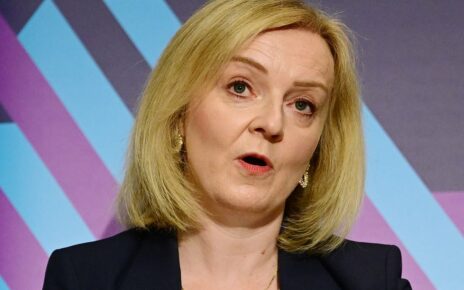Inflation across Australia has increased to 6.1 per cent through the past 12 months as high construction and petrol prices continue to squeeze the nation’s consumers.
The Australian Bureau of Statistics on Wednesday reported that in the June quarter, the consumer price index increased by 1.8 per cent. That followed a 2.1 per cent lift through the first three months.
Rising petrol prices have contributed to inflation hitting 6.1 per cent.Credit:Steven Siewert
The result was slightly below market and economists’ expectations but means inflation still remains at its highest level in 20 years.
But in a worry for the Reserve Bank, the key measures of underlying inflation – which strip out one-off price increases – both jumped above 4 per cent.
The result keeps pressure on the Reserve Bank board, which meets on Tuesday, to consider a third successive 0.5 percentage point interest rate increase. That would take the official cash rate to 1.85 per cent, its highest level since 2016.
Treasurer Jim Chalmers says the government is not surprised to see inflation rise over 6 per cent, but it was confronting.
“It’s not news to millions of Australians who feel this inflation challenge every time they go to the supermarket, and every time their bills arrive,” he said.
“This inflation outcome today, mirrors, the lived experience of Australians who are doing a tough.”
Inflation rose 1.8 per cent in the June quarter and 6.1 per cent through the year, the largest annual increase since the introduction of the GST in 2001.
“These are confronting numbers when it comes to the cost of living pressures that Australians in every corner of our country are feeling that inflation is high and rising,” Chalmers said.
Higher petrol prices helped drive up the price index in the last three months despite the cut to the fuel tax. A rise in new building (up 5.6 per cent) and fuel costs (up 4.2 per cent) were the most significant drivers of inflation over the three months to the end of June, ABS head of prices statistics Michelle Marquardt said.
Over the last 12 months, the cost of new dwellings and fuel have increased by 20.3 per cent and 32.1 per cent respectively.
“Shortages of building supplies and labour, high freight costs and ongoing high levels of construction activity continued to contribute to price rises for newly built dwellings,” she said.
“The CPI’s automotive fuel series reached a record level for the fourth consecutive quarter. Fuel prices rose strongly over May and June, following a fall in April due to the fuel excise cut.”
Food prices also rose, driven by higher vegetable costs (up 7.3 per cent), and pricier fruit (up 3.7 per cent).
“The annual rise in the CPI is the largest since the introduction of the goods and services tax,” Marquardt said.
Cut through the noise of federal politics with news, views and expert analysis from Jacqueline Maley. Subscribers can sign up to our weekly Inside Politics newsletter here.
Most Viewed in Politics
From our partners
Source: Read Full Article


